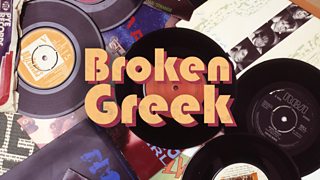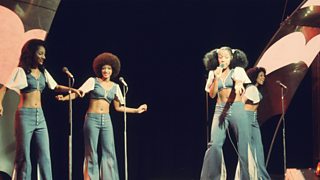10 profound human truths found in cheesy pop songs
A key moment in Pete Paphides’s memoir Broken Greek takes place when our young protagonist hears The Rubettes’ Sugar Baby Love for the first time and realises that, more than any other song in the world, this slice of bubblegum pop totally reflects his inner turmoil.
Keeping in mind Noël Coward’s famous utterance about the unexpected potency of cheap art, Pete guides us through 10 more “throwaway” pop songs and cheesy mainstream hits that alight on profound human truths.

Irene Cara: Fame (1980)
With a chorus that goes, “Fame! I’m gonna live forever / I’m going to learn how to fly (high)”, it’s easy to miss the emotional small print of Irene Cara’s theme song to Alan Parker’s film set in the New York School of Performing Arts. But if you zone in on Michael Gore’s lyrics once you’ve seen the film, only then do you start to notice that it’s really a song about pursuing a preposterously unlikely outcome to the detriment of your relationships and your personal well¬being – and all with no backup plan. It’s a song that comes from a place of desperation and the attendant knowledge of what it means to run that risk. By the final section of the film, when we see Coco Hernandez – who, lest we forget, is played by Cara in the film – weeping in the squalid apartment of the "auteur" who asks her to take her top off, we finally see what that risk amounts to.
Warning: Third party content may contain adverts
Mika: Grace Kelly (2007)
Scan the ingredients of Mika’s breakthrough hit and it’s really not at all dissimilar to Cara’s song.
Grace Kelly also comes from a place of desperation – written after yet another rejection from a record label who wanted Mika to tone down the flamboyance and err more towards tasteful singer-songwriter. The last thing that Mika did on the recording was to add a sample of Grace Kelly declaring that “getting angry doesn’t solve anything.” The irony, explained Mika, was that “getting angry solves quite a lot of things.” And, he might have added, results in a song that spends five weeks at number one.
Warning: Third party content may contain adverts
The Fortunes: Storm In A Teacup (1972)
With most of their success in the previous decade, The Fortunes were already relying on the cabaret circuit for a means of income. Their final album – featuring compositions by big hitters such as Jimmy Webb and Cook and Greenaway – didn’t even get a release here, although its exquisitely-arranged title track provided them with one final UK hit. And it’s absolutely sublime.
A million messy, overwrought songs have been written by men who suspect that their partners may not only have eyes for them. Co-written by the great Lynsey de Paul, Storm In A Teacup is an elegant inversion of all those songs – a loving, light-hearted reassurance to an insecure lover who “may have overheard” something not worth getting exercised about.
Eliza Doolittle: Pack Up (2010)
If you’re the sort of person who uses “millennial” as a pejorative term, you were never going to be won over by Eliza Doolittle’s 2010 hit. But those of us who recognise that it takes a bit of fancy footwork to reach adulthood intact in a world dominated by social media will be charmed by the attitude on show in Pack Up. In a song about putting on your best happy face on days when it’s all a bit too much, the rumbustious vaudevillian arrangement finds its equal opposite in the way touchingly precarious way Doolittle sings the line “I’m trying to care a little less”.
Warning: Third party content may contain adverts
Teach-In: Ding-A-Dong (1975)
Similar in sentiment to Pack Up, Teach-In’s 1975 hit a fake-it-to-make-it instruction to will the world you want to see around you.
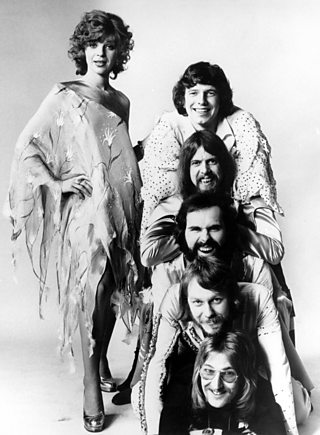
As if to prove their own point about the power of the human will, Teach-In task themselves with the challenge of singing lyrics that lapse into unabashed nonsense as if their world depended on it (which, on the night it won them the Eurovision Song Contest, it sort of did).
Twenty-three years later, Edwyn Collins recorded an even more impassioned version as part of Channel 4’s A Song For Eurotrash TV special. Anyone who underestimates the power of walking along with their ding-dang-dong does so at their peril.
Santa Esmeralda: Don’t Let Me Be Misunderstood (1977)
Composer Horace Ott came up with the melody and chorus lyric of Don’t Let Me Be Misunderstood in 1964 after falling out with his wife-to-be Gloria Caldwell. Within a year, that argument had resulted in a song with which both Nina Simone and The Animals enjoyed huge success ().
For the longest time, you risked getting yourself into a comparable argument if you declared that the epic 1977 Latin reinvention of the song by French producers Nicolas Skorsky and Jean Manuel de Scarano trumps all the others.
And yet Santa Esmeralda’s debut hit – in particular, the full 15-minute version – is an astonishing synergy of handclaps, keening mariachi trumpets and deeply funky flamenco guitars, piloted to stratospheric heights by vocalist Leroy Gomez.
Does he sound like he means a single word he’s singing? No, not really. Does he sound like he’s lasciviously trying to weasel his way back into the affections of the woman who’s mad at him? Totally. Is it likely to work? With a soundtrack like that, most definitely.
Michael Jackson: One Day In Your Life (1975)
Renee Armand’s 1972 album The Rain Book remains one of the great undiscovered American singer-songwriter albums of its era – an essential purchase for anyone who might typically reach for Carole King or Carly Simon on a rainy Sunday morning.
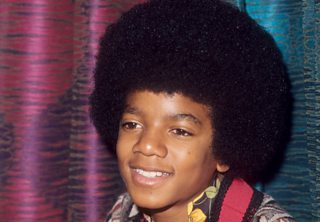
While failing to see any success for her own music, Renee did end up on the credits of Michael Jackson’s first ever British chart-topper, a 1975 album track released by Motown to cash in on Jacko’s popularity after the success of his 1979 Epic debut Off The Wall. Context shapes perception and, on the back of Michael’s run of disco hits, the yearning juvenilia of One Day In Your Life felt like an unwelcome disruption to the narrative. But, of course, we know that as early as I Want You Back, that the child Michael could open his mouth and access the emotional highs and lows of countless past lives.
He was 16 when he recorded One Day In Your Life: young enough to be idealistic about love; yet old enough to have a sense of what that idealism might have to withstand. Which made One Day In Your Life the perfect song for him. Listen to that moment at around one minute and forty seconds when he sings, “Just call my name, and I'll be there” and Sam Brown’s inspired arrangement takes centre stage. When those accompanying vocals commence vertical take-off, travelling in a different direction to the melancholy descending harmonica of LA sessioneer Eddy Manson, the effect is to leave you unsure of whether you should laugh or cry.
The Hollies: Wiggle That Wotsit (1977)
Before disco, there was boogie – the favoured term used by pop fans, music papers and musicians to describe the emerging strain of soul music that was engineered to meet the needs of the dancefloor.
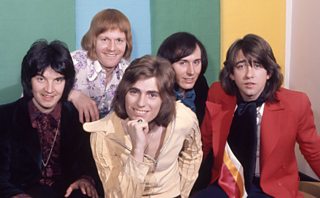
Like so many groups who rose to fame with the 60s beat boom, The Hollies needed to survive by adapting. Of course, The Bee Gees managed to do that with spectacular results. And The Hollies? Well, comparing their 1977 album Russian Roulette and Bee Gees’ Saturday Night Fever songs is like comparing Studio 54 to singles night at Manchester Rotters. The legend of the former precedes it to such a degree that you can almost convince yourself you’ve been there. But The Hollies’ take on disco evokes a more elusive innocent segment of pop-cultural history.
There are several great songs on Russian Roulette – including the hugely collectable DJ fave Draggin’ My Heels – but Wiggle That Wotsit edges it because that’s obviously the one Jarvis Cocker would be most likely to cover.
Barbara Dickson: Caravan Song (1980)
Perhaps the key thing to note about Dickson’s 1980 hit single is that it’s the creation of Mike Batt who, at the time of its release, was best known: (a) as the man behind the pop star incarnation of The Wombles; and (b) the man who wrote Bright Eyes by Art Garfunkel.

Once availed of these facts, listen to it and it’s like you’re listening to the saddest Wombles song of all time.
Batt wrote Caravan Song for a film about gun-running nomads. However, as with his Wombles and Watership Down work, the liberal use of oboe ensured that nothing in Caravan Song evoked any scene more exotic than the deserted British countryside at magic hour. Play it immediately after, say, Nick Drake’s Bryter Layter and, in sonic terms, it’s a short skip away.
And, years later, when Batt admitted that the song wasn’t about gunrunning nomads, but about the realisation that he wasn’t going to be able to salvage his first marriage, it didn’t seem all that surprising after all.
Lena Zavaroni: Will He Kiss Me Tonight? (1980)
History doesn’t record how a song written and recorded by punk trio Dolly Mixture came to the attention of Zavaroni, but the very presence of these two versions sets up a poignant dichotomy: on the one hand the three teenage housemates liberated by punk from the pressure to apply a polished sheen to their DIY brand of bubblegum pop; on the other, the troubled former child star who would surely have had a much better time forsaking some of that fame for the fun that Dolly Mixture were having.

In Dolly Mixture’s hands, Will He Kiss Me Tonight? sounded like The Ronettes seizing the means of control and coming up with something just as good and truer to life than any Brill Building A-lister could have provided.
Zavaroni’s version is to the original what Tracey Ullman’s version of They Don’t Know is to Kirsty MacColl’s earlier recording. The vertiginous rush of a youthful crush lovingly catapulted from the bedroom to the glare of the footlights – and, in a far more just world than this one, a surefire chart-topper.
Listen to Book of the Week: Broken Greek – An autobiographical story of chip shops and pop songs from music journalist Pete Paphides.

